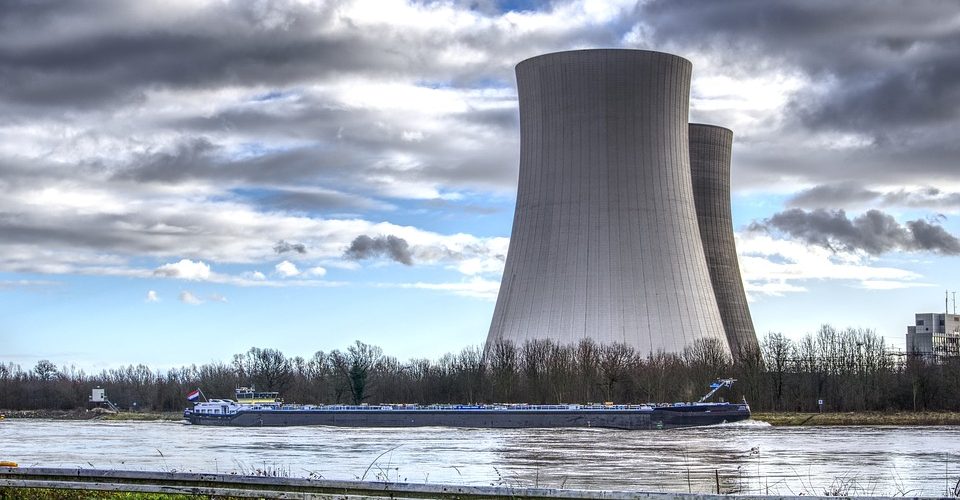A bipartisan effort to promote advances in nuclear technology to help America regain its standing as a top exporter is gaining momentum in Congress.
Legislation introduced last month also will promote nuclear advancements in the race to reduce greenhouse gases nationally and worldwide.
Called the Nuclear Energy Leadership Act (NELA), the bill was introduced but did not make it to a vote last year. Last month, a bipartisan group of 15 senators led by Sens. Lisa Murkowski (R-Alaska) and Cory Booker (D-NJ) reintroduced it.
“As we seek to maintain electric reliability, keep energy prices affordable, and address climate change, nuclear power stands out as one of our very best options,” stated Sen. Murkowski in introducing the bill. “We once led the world in nuclear energy, but have surrendered that position to Russia and China. It is imperative that we reverse that trend and develop advanced nuclear technologies domestically.”
Bipartisan effort to advance clean nuclear energy
In the past year, Democrats and Republicans overwhelmingly approved two bills to help advance American nuclear technology.
NELA would provide the third crucial step to promote public-private partnerships to research and develop next-generation reactor technology for commercialization.
In introducing the bill, Sen. Booker said nuclear energy is an essential tool to reduce greenhouse emissions nationally and worldwide.
“It’s imperative for the United States to lead the way on tackling the world’s climate crisis and that must include the development of clean and innovative technologies like next generation nuclear energy,” Booker said. “This bipartisan bill will spur development of demonstration projects at the Department of Energy, which could become an important source of carbon free electricity generation.”
The bill has a chance of passing this year as lawmakers search for ways to confront climate change.
New reactor technology is producing smaller, more efficient technology. Nuclear waste could also become a thing of the past as scientists get closer to finding other sources of energy other than plutonium.
Here are some of the highlights from the three pieces of legislation:
Nuclear Energy Leadership Act (NELA) Introduced in the U.S. Senate March 27, the legislation would:
- Accelerate private-public partnerships to test and develop new advanced reactor demonstration projects.
- Authorize programs for private nuclear companies to be able to test reactors at federal facilities and to make it easier to license advanced reactors.
- Facilitate the path to market for advanced reactors by allowing the federal government to be an early adopter of commercialized technologies.
- Support university training of nuclear scientists.
Nuclear Energy Innovation and Modernization Act was signed into law in January to streamline the licensing process for advanced reactor designs and reform the Nuclear Regulatory Commission (NRC) fee structure.
Nuclear Energy Innovation Capabilities Act Signed into law in September, the bill establishes a NRC fee cost-share program for advanced technologies and directs the Department of Energy to create a domestic neutron source to test new reactors.
Russia and China now in the lead
Although the United States invented and commercialized nuclear power, Russia and China have taken over as the top exporters of nuclear reactor technology.
Now, two-thirds of global reactors under construction use Russian and Chinese designs, Nuclear Energy Institute CEO and President Maria Korsnick said after NELA was reintroduced last month.
“They are making massive investments, expanding their domestic fleet, and developing new technologies. Their efforts to promote nuclear power internationally are core parts of their foreign policy,” she said.
“America is falling behind,” Korsnick said. “Other countries, from Poland to the Czech Republic to Jordan, are also planning to build or expand nuclear – and we need to be at the front of the pack.”
National security issues surround nuclear proliferation
NELA also touches on national security. As other countries step in to sell nuclear reactors, the U.S. needs to step up, not only to produce safe technology but to strengthen alliances with other countries, proponents said.
Russia and China are vying for expanded influence in countries critical to U.S. diplomacy like Iran, Saudi Arabia, Turkey, Jordan, Egypt, and Pakistan, according to a report by the Atlantic Council, an international think tank that conducts research to help policymakers “create a more secure and prosperous world.”
President Donald Trump’s administration must not underestimate the importance of America’s need to maintain a competitive edge in the proliferation of nuclear reactors, the report states.
“U.S. global nuclear engagement is critical – not only because it supports military needs and advances commercial interests, but also because it brings with it a culture that promotes safety, security of nuclear materials, and nonproliferation.”
















Add comment